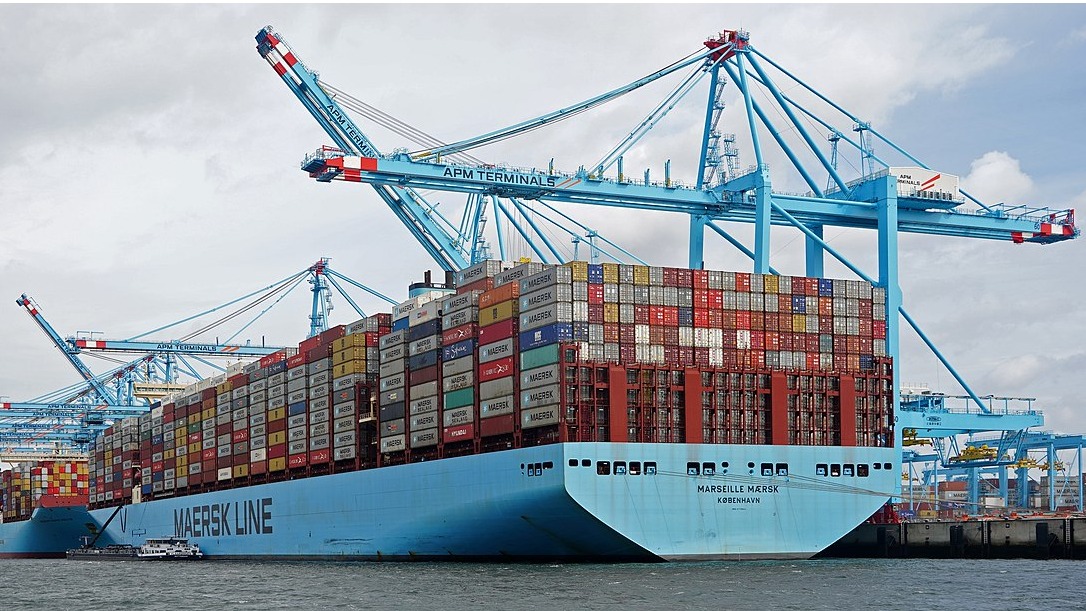The United States will slash the tariff on small parcels sent from China to 54 per cent from 120 per cent, a White House executive order said on Monday, as part of a broader de-escalation in the trade war between the world's two largest economies.
The tariff relief, which affects major Chinese e-commerce players including Shein and Temu, follows a weekend agreement between Beijing and Washington to reduce duties imposed on each other's goods for 90 days after talks in Geneva.
Beginning 14 May, items valued at up to $800 sent from China via postal services will face either the lower 54 per cent tariff or a flat fee of $100, with carriers able to select either option. Previous plans to increase the flat fee to $200 in June have been shelved.
"I also deem it necessary and appropriate to: (a) decrease the ad valorem rate of duty... from 120 to 54 per cent," President Donald Trump said in the statement.
The move provides breathing space for online retailers like Shein and Temu that have expanded rapidly by shipping goods directly to US consumers from China using the so-called "de minimis" rule, which previously allowed items valued under $800 to enter the United States duty free with minimal customs inspections.
In February, Trump ended this exemption, blaming it for being heavily exploited by e-commerce firms and for facilitating the trafficking of illicit goods such as fentanyl.
Jianlong Hu, chief executive officer of Brands Factory, a Chinese cross-border e-commerce consultancy, said the reduced rate was still challenging for businesses. "Sellers are probably taking a wait-and-see approach but in general I think it's fair to say the boom times of small package delivery from China to the U.S., the Golden Age is already gone."
The broader Geneva agreement slashed tariffs for both nations by 115 percentage points each, bringing US tariffs on Chinese goods down to 30 per cent from 145 per cent, while China's duties fell to 10 per cent from 125 per cent.
"The consensus from both delegations this weekend is neither side wants a decoupling," US treasury secretary Scott Bessent said on Monday. "And what had occurred with these very high tariffs... was the equivalent of an embargo, and neither side wants that. We do want trade."
The 90-day pause will give companies time to adapt their business models, with many likely to use the period to bring in bulk shipments and restock US warehouses.
Financial markets initially rallied on news of the tariff truce, with the S&P 500 surging nearly 3.3 per cent on Monday to its highest level since early March. However, trading was more subdued on Tuesday despite data showing US consumer prices rose at the slowest pace since early 2021.
Trump told reporters he plans to speak with Chinese President Xi Jinping soon, "maybe at the end of the week." The president added that tariffs would not return to the previous 145 per cent level after the 90-day pause if no formal agreement is reached, but acknowledged they could still go "substantially higher."
"At 145 per cent, you're really decoupling because nobody's going to buy," Trump said. "I think there will be a deal."
Goldman Sachs economists have cut the chances of a US recession in the next 12 months to 35 per cent from 45 per cent, and now forecast the US economy will grow by 1 per cent during 2025, twice as fast as previously projected prior to Trump’s inauguration.
Latest News
-
Tesco makes ‘significant strides’ on safety through body worn cameras
-
Flying Tiger Copenhagen appoints new group chief executive
-
Walgreens cuts over 600 jobs after buyout
-
Mango opens first store in Limerick as part of expansion plan
-
eBay and Etsy to buy Depop for $1.2bn
-
REWE opens automated fresh food facility to serve Berlin outlets
Beyond Channels: Redefining retail with Unified Commerce
This Retail Systems fireside chat with Nikki Baird, Vice President, Strategy & Product at Aptos will explore how unified commerce strategies enable retailers to tear down these barriers and unlock new levels of operational agility and customer satisfaction.
The future of self-checkout: Building a system that works for consumers and retailers
In this webinar, industry leaders discussed what the future of self-checkout looks like and how retailers can make the technology work for everyone.
© 2024 Perspective Publishing Privacy & Cookies



.jpeg)






Recent Stories